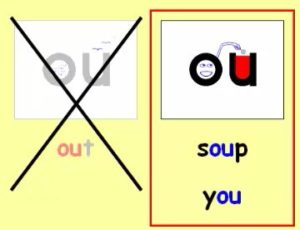About this time last year, Jiemba Sands, my oldest grandson, featured in an article in The Sunday Tasmanian, southern Tasmania’s local Sunday newspaper.
From reading that article, I discovered the existence of TikTok. He is very well known on TikTok as well as Instagram, Youtube, Facebook … with well over a million followers.
So, for fans of Jiemba Sands, here is a video with a few photos and video clips of him both performing and training as he was growing up. They feature in my educational program, Gilead® Success with Phonics (along with many other photos and video clips). The video starts with a photo of Jiemba at six months, goes through to some of his more recent videos that he kindly let me use, finishing with the clip that gave him the name, “the fence guy”.
Also, for teachers or parents who are looking for material to encourage a struggling reader to engage with and practise key knowledge and skills, “Find Jiemba” could be a useful exercise. To make sure you find them all see Answer key
If your school has a student mentoring program to help with reading, linking an older student with a younger one who is also struggling can be really helpful for both of them. The success of such a plan would depend on having an engaging, sequential, synthetic phonics program to work through together. “Find Jiemba” could be part of this.
There is also a whole section on Jiemba Sands growing up in “The Circus Family”, plus he appears in places in two other interactive books, “Our Place” and “The Local Show”, in The Gilead® Success with Reading Program, Part 2. This is a program specifically designed for older students that addresses key areas of difficulty and is engaging.
 A note for parents and teachers – I never teach common words like “you” just as “sight words”. The most common sound of “ou” in out is taught early in Level 7 of Gilead® Success with Phonics. The second sound of “ou” is introduced later in that level, specifically to teach the word “you”, along with some examples to practise it. The three most common sounds of “ou” – in out, soup and double trouble – are taught and practised in the regular sequence later in the program, in Level 9 (also “ou” in shoulder). That is where there are videos, activities and games to practise the three sounds.
A note for parents and teachers – I never teach common words like “you” just as “sight words”. The most common sound of “ou” in out is taught early in Level 7 of Gilead® Success with Phonics. The second sound of “ou” is introduced later in that level, specifically to teach the word “you”, along with some examples to practise it. The three most common sounds of “ou” – in out, soup and double trouble – are taught and practised in the regular sequence later in the program, in Level 9 (also “ou” in shoulder). That is where there are videos, activities and games to practise the three sounds.
If you or your students don’t know Jiemba, check out a compilation of discussions from Right This Minute (if they like US talk shows) or just do an internet search for Jiemba Sands to see videos of his amazing and funny tricks.






{ 0 comments… add one now }